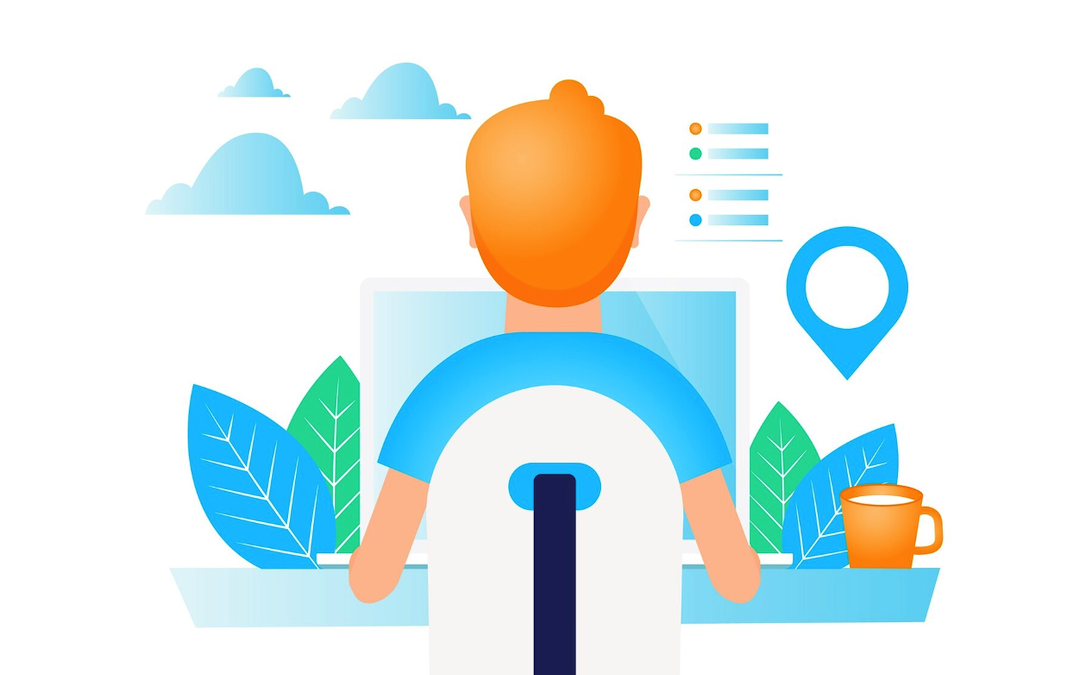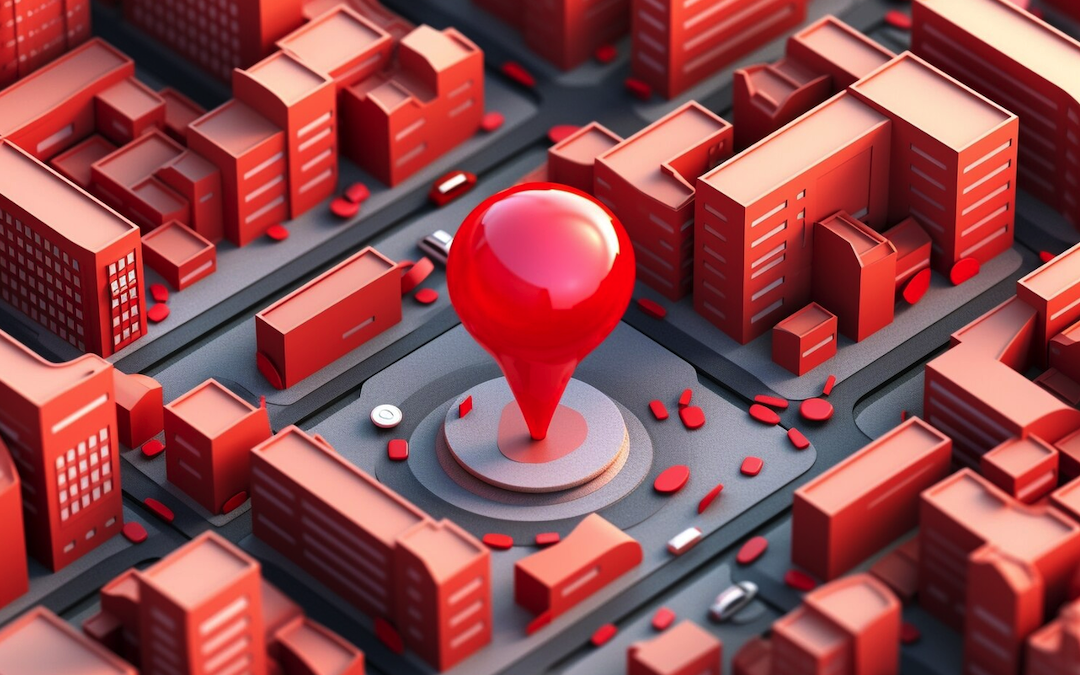
Geolocation has been one of the trending technologies today, ensuring security. Geolocation technology is utilized in several ways, such as pinpointing individuals' locations, tracking deliveries, and detecting users' IP addresses.
Developers use different technologies, software, and hardware combinations to determine a device, shipment, or individual location. The application development processes involve several phases, including testing and validation conducted by a test automation services team to ensure efficient and quality results.
Geolocation has become a significant tool for businesses and government sectors. It is crucial for online security, particularly in financial, retail, government sectors, logistics, and other industries. This article will cover the geolocation definition, how geolocation technology works, and its significance for online security.
What is Geolocation?
Geolocation is an advanced technology that uses a person or device's data to allocate an individual and an object's location. It uses various methods such as the Global Positioning System (GPS) and IP geolocation to get the user's whereabouts using the internet. It determines the timezone, state, shipment exact positioning, IP addresses, etc.
How Does It Work?
Geolocation technology has been one of the vital tech innovations today. It has several methods and applications and is becoming an essential business tool, especially for online security. Its function is customized to specific apps, enterprises, and environments.
We need to understand its use cases to know how it works, as each function is based on enterprises and the environment.
Geolocation Typical Use Cases
Here are the typical use cases for geolocation with examples:
Social media: Meta (Facebook) is one of the social media platforms that use geolocation data, allowing users to check in or share their location with others. Moreover, it enables users to find items or places of interest online.
Government agencies: Fire departments, police, ambulance, and other agencies used geolocation services to locate people needing help or any emergency forms quickly.
Fleet management services: Cargo or shipment utilizes geolocation technology to monitor deliveries and fleet activities to manage routes or dispatches. It helps managers to keep deliveries on time, secured, and within the budget.
Navigation and location-based services: LBS is a mobile application software that detects device location. It integrates data from different resources, including GPS or satellites, to provide services based on the user's geographic location.
E-commerce: Retail or online shops use geolocation technology to identify customer's interests. It helps marketers identify customers' needs by recommending products or promotions to consumers in nearby stores, allowing a more personalized customer experience.
Financial services: Insurance, banking, and other forms of payments use geolocation to secure online financial transactions. For instance, payment transactions require location tracking for whatever financial activities attempt. This allows financial services to track fraud activities if the payment doesn't match the card owner's location. It alerts the card provider to take immediate action, such as shutting the card down.

Geolocation Data Sources
Geolocation has multiple geolocation data sources to efficiently pinpoint an object, device, or individual.
GPS
The Global Positioning System utilizes many satellites for global coverage. GPS is efficient for determining a receiver's location by connecting signals to multiple satellites, ensuring global coverage. This technology serves as the foundation of a multitude of applications, from navigation and monitoring services.
Cell tower
Device location is tracked through cell towers by triangulation of three towers in nearby areas.
Wi-Fi
This networking technology allows different devices to connect without wires. Wi-Fi uses radio technology to send or receive data between a router or devices, unintentionally exposing the user's location.
Geolocation Is Important for Online Security
Since geolocation can be an excellent tool for locating devices, objects, or a person's whereabouts, it is essential for online security. Here's how:
Bot detection
Bots or auto-scripts designed to imitate human activities online are used in cyber attacks. Cyber attacks are increasing in the US, and companies spend over $452 billion US dollars in 2024.
Experts can determine suspicious actions by analyzing the bots' location. Suspicious login attempts from different locations showed a potential robotic attack. These safety measures are typically applied in social media platforms and banking transactions where users must have a two-factor authentication code to avoid fraud.
Shipment or freight tracking
Geolocation can help secure shipments or safeguard delivery activities by using GPS. The device can receive alerts from the Global Positioning System by syncing the location data from your device to the cloud app, allowing you to monitor your shipments on a map in real-time without worries. It promotes better customer experience and improves logistics.
Insurance claims
The geolocation features of insurance adjusting apps can help to identify fraudulent insurance claims by determining the insurer's location. If the said activity doesn't match the actual location of the claimant, the transaction is immediately detected as fraud.
Banking
Online banking has been the main attraction of data theft. Geolocation allows bank holders to manage their ATM cards through their mobile phones by enabling geolocation sensors for security purposes.
Payments
Using credit cards in online payments is safe with a geolocation technology-enabled app. It will help the bank identify the location and the cardholder's data. Bank issuers block the card or take security measures when someone's card is stolen or used by a theft.

Benefits of Geolocation to Businesses
Aside from bot detection and other fraudulent, geolocation offered multiple benefits to businesses:
Customer valuable insights
Geolocation data can help business owners and managers gain valuable insights based on buyers’ behavior, interests, and preferences. Industries can optimize their marketing strategies and improve customer experience and retention with it.
Boost efficiency
In logistics industries such as freight monitoring or fleet management, geolocation can assist managers in monitoring their shipments or cargo in real-time through GPS. Geolocation technology detects the delivery locations and routes, boosting efficiency and time deliveries, avoiding delays, and exceeding transport budget.
Enhance consumer engagement
Geolocation data facilitates location-based analytics, helping business owners offer products or promotions based on the customer’s interest and location. It encourages a more personalized customer experience, increases revenue, and enables businesses to keep loyal customers.
Improve security
Businesses can boost their security via geolocation data. For example, online banking requires a location authenticator, which users must turn on location features on their devices before the transactions go through.
Conclusion
Behind geolocation technology success comes with downsides. Businesses should know how to mitigate these threats by providing transparent privacy regulations, establishing user consent, building security measures, following applicable laws, utilizing reputable third-party apps, and others.
By combining both methods, providing security and privacy regulations, and adhering to the applicable laws, businesses can improve user experience while keeping user privacy and security.
Share this post
Leave a comment
All comments are moderated. Spammy and bot submitted comments are deleted. Please submit the comments that are helpful to others, and we'll approve your comments. A comment that includes outbound link will only be approved if the content is relevant to the topic, and has some value to our readers.

Comments (0)
No comment